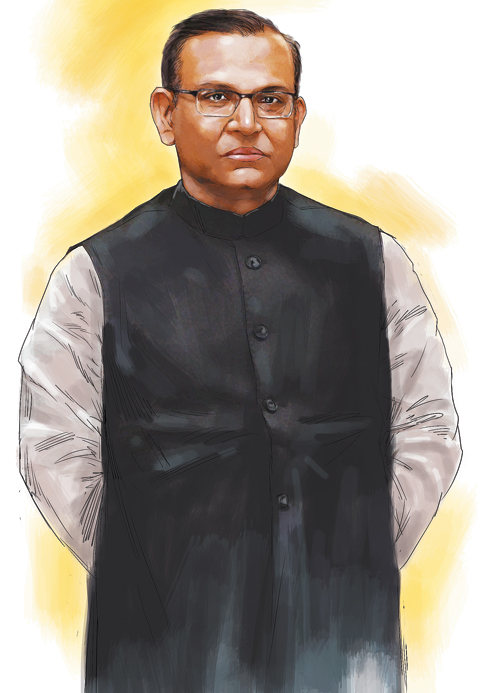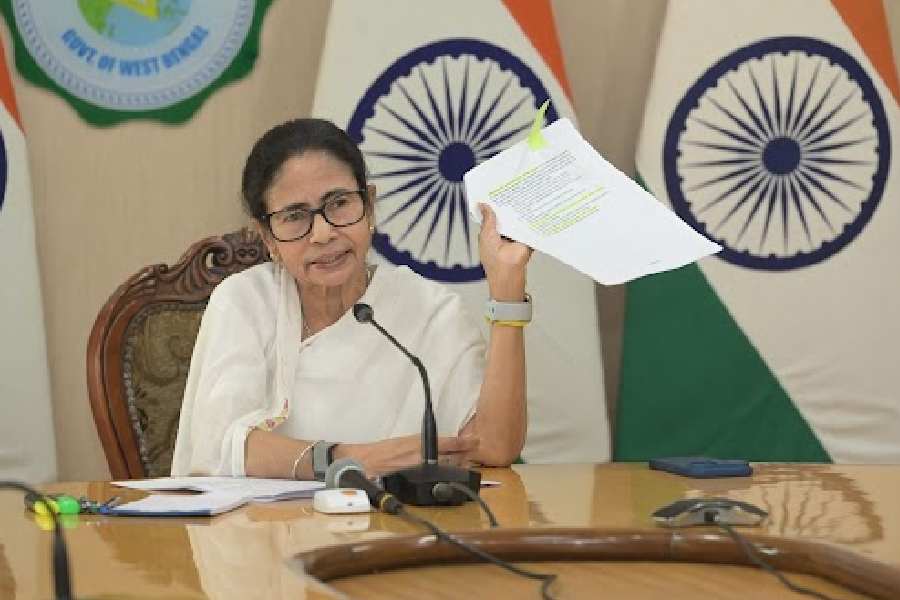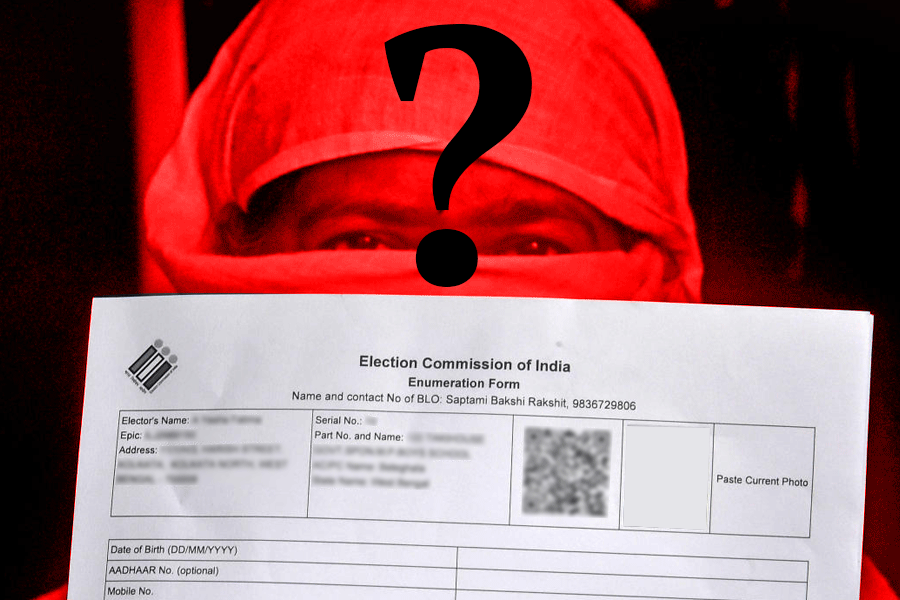
You'd expect a minister of state for finance to really hold forth on matters economic. Jayant Sinha doesn't do that. The only time he speaks with emotion is when the subject relates to his father, former finance minister Yashwant Sinha, or cinema.
And you'd think that the 52-year-old junior minister with his unvarnished speech and tidy sartorial style (stiff white kurta-churidar with a khadi charcoal grey jacket) would be too busy poring over fiscal scripts to think of anything else. But Sinha has been writing screenplays for films on the unlikeliest of themes.
Watch out, M. Night Shyamalan. Hollywood is seeking out Sinha's script on Ranji alias Ranjitsinhji, the cricket legend, immortalised in an eponymous trophy.
"I used to play a fair bit of cricket and tennis too. But here, more than the sport, it is how you reconcile the various threads of Ranji's life. A number of people are excited about my script. I guess Hollywood's the destination because over 60 per cent of it is in English. Much of Ranji's life was spent in England," he ruminates.
So while Sinha answers tricky queries on how the Modi government gave foreign investors the heebie-jeebies with its clumsy handling of the minimum alternate tax (MAT) or the government's image conflict over being "pro-poor" or "pro-industry" impassively (but more of that later), his eyes sparkle when he speaks about the script.
"It's a love story on Ranji. He fell in love with an Englishwoman but did not marry her. He came back to India to become the Nawab of Jamnagar. His life resonates for many of us who left an adopted country and came back to India," he says.
Sinha, an IITian who went on to do an MS at Pennsylvania University and an MBA at Harvard Business School, returned to India after living in the US for 20 years, working as a banker, a hedge fund manager and an investment consultant. His last assignment was at Omidyar Network, the philanthropy arm of the eBay billionaire Pierre Omidyar, who hired Sinha to establish and run Omidyar Network India.
"More than 30 years ago, when you went to the US, you felt like a foreigner. Today, there are many, many Indians. It was difficult to make phone calls, there was no Internet. Between 1986 and 1989, I did not see my parents. I had applied for a green card and had to therefore stay put. It was difficult to get information about India. Newspapers from India came in very late. It was a surreal experience," he says.
Once, he says, he was driving in Philadelphia when he suddenly heard his father's voice on National Public Radio. "He was introduced as a national spokesperson, I think, of the Janata Dal then," he recalls.
If Ranji was drawn back to India by the call of his regal legacy, it was politics that beckoned Sinha, prompting him to return to India for good in 2009.
By then, his father, who had resigned from the Indian Administrative Service (IAS) to join politics, had moved from the Janata Parivar to the Bharatiya Janata Party (BJP). When Sinha senior fought the elections from Hazaribagh, his son was his campaign manager. In 2009, he ran the BJP's central election control room with Sudheendra Kulkarni, ex-BJP president L.K. Advani's former political advisor.
In 2014, he replaced his father as BJP's candidate from Hazaribagh. I remind him how, while campaigning for him in April 2014, Narendra Modi, then a prime ministerial candidate, had expressed wonderment over how the "suited-booted" Sinha scion would fit into a "kurta-pyjama".
"If you watch Modi ji's speech on YouTube, you will also hear the nice things he said about me. Yes, he said he was extremely worried. But I am gratified and feel privileged to serve the country. I am the son and grandson of an IAS and an ICS [Indian Civil Service] officer. My family's always been in public service to serve India. If I left the private sector and the US to serve India, it is because of that background," he stresses.
Didn't his family court its share of controversy when his father was a finance minister in the Atal Bihari Vajpayee government? In 2001, the government was confronted with a fiasco that led to a freeze on transactions in what was called the US-64 scheme, India's oldest and largest mutual fund scheme. Fingers were pointed at various players including Yashwant Sinha.
"Every finance minister has to deal with a number of situations," he replies with a frown. "When we look back, the US-64 scheme was satisfactorily resolved."
What of his own wife, Punita Kumar? It was alleged that the India-Mauritius double tax avoidance treaty was signed principally to facilitate her business interests.
The forehead creases up again. "In political life, controversies are fabricated. There is no basis for such charges," he claims and refuses to take more questions on a discomfiting past.
So I move on to the MAT and the math of the matter in the Modi government.
Sinha believes that a "certain narrative" over MAT - "unsupported by facts" - has taken shape.
"First, foreign investors who are based in jurisdictions that have treaties with India will not be subject to MAT on capital gains and royalties. Second, the tax code. With respect to corporate houses, the finance minister has stated that we want to reduce corporate tax from 30 to 25 per cent. We want to eliminate the contentious exemptions that are at present subject to differing interpretations. The corporate tax code will bring down this; we are simplifying it."
He then refers to the Goods and Service Tax (GST), which brought Parliament to a standstill in the last session. This indirect tax reform plan - which seeks to put together a uniform tax levied across the country on all goods and services - has been opposed by some political parties which believe that it will curb the fiscal powers of states.
"The bill is pretty much in place because the Congress is on record to state that after the bill is vetted by the select committee (of the Rajya Sabha), we will pass it in the first week of the monsoon session (of Parliament). It's an iron-clad commitment from the Congress," he explains.
What about retroactive tax actions - taxing companies on a retrospective basis?
To help companies do business in India, he points out, the finance minister has already said that there will be no such taxation.
His worry, however, is that while around the world there are "legitimate ways of tax avoidance and this is a continuous dynamic that came into play while formulating the tax policy", in India tax collections are "woefully low".
"The tax to GDP [gross domestic product] ratio is 15-16 per cent while the average in the developed countries is 35 per cent. The tax to GDP ratio has to improve if we are to run a 21st century state and provide for healthcare, education, sanitation, etc.," he says.
If you look at India's budget document, he adds, you will see that while the government's total expenditure for 2015-16 is Rs 17.77 lakh crore, the tax collection is Rs 11.4 lakh crore.
"Tell me, which shopkeeper, which householder can run his or her establishment by generating deficits of this kind? So when people talk of tax terrorism, we have to peel the onion skin to get to the core," Sinha says.
He is convinced that the government is not in the throes of an identity crisis. "There is no contradiction between being pro-poor and pro-market. There is a big difference in being pro-corporate because that means one is favouring certain companies. We want a market economy to function well," Sinha says. "We will have to create economic resources to look after the poor because in the end if you stifle a market economy, you will have no resources to look after the poor."
How is it to work under a minister known for his high profile? Sinha holds that he is thrilled about being mentored by Arun Jaitley. "He is extraordinary. I see myself as his disciple. I have been blessed in my life with extraordinary leaders such as Arun ji, Modiji and my father," he gushes.
But because he came into the BJP laterally - without roots in the Rashtriya Swayamsevak Sangh - he counts non-Sangh leaders in the roll call of political favourites which includes Vajpayee. Gandhi is there, of course, as are Rajendra Prasad and J.P. Narayan. And he mentions Nehru.
But the RSS, I point out, has for long been attacking Nehru for his so-called "minority appeasement" policies.
"Nehru's commitment to parliamentary democracy is inspiring," he replies. "His conduct in Parliament was exemplary because he subjected himself to parliamentary accountability."
To the sceptics of India Inc, fretting and fuming over a perceived lack of action on the ground for the past year since Modi came in, his cup of optimism brims over.
"NDA-I inherited an economy in bad shape. There were economic headwinds. NDA-II is being propelled by economic tail winds and within a year we have achieved macro-economic stability," he claims.
For those who still cavil, his message is simple. "If business is not getting the quick lift it wanted, it is by design. The monetary policy is tight. If we did not do that, we could not have brought down inflation and the fiscal deficit."
With fiscal consolidation, he stresses, the economy can move up. And that's a script that the nation would applaud with gusto.










